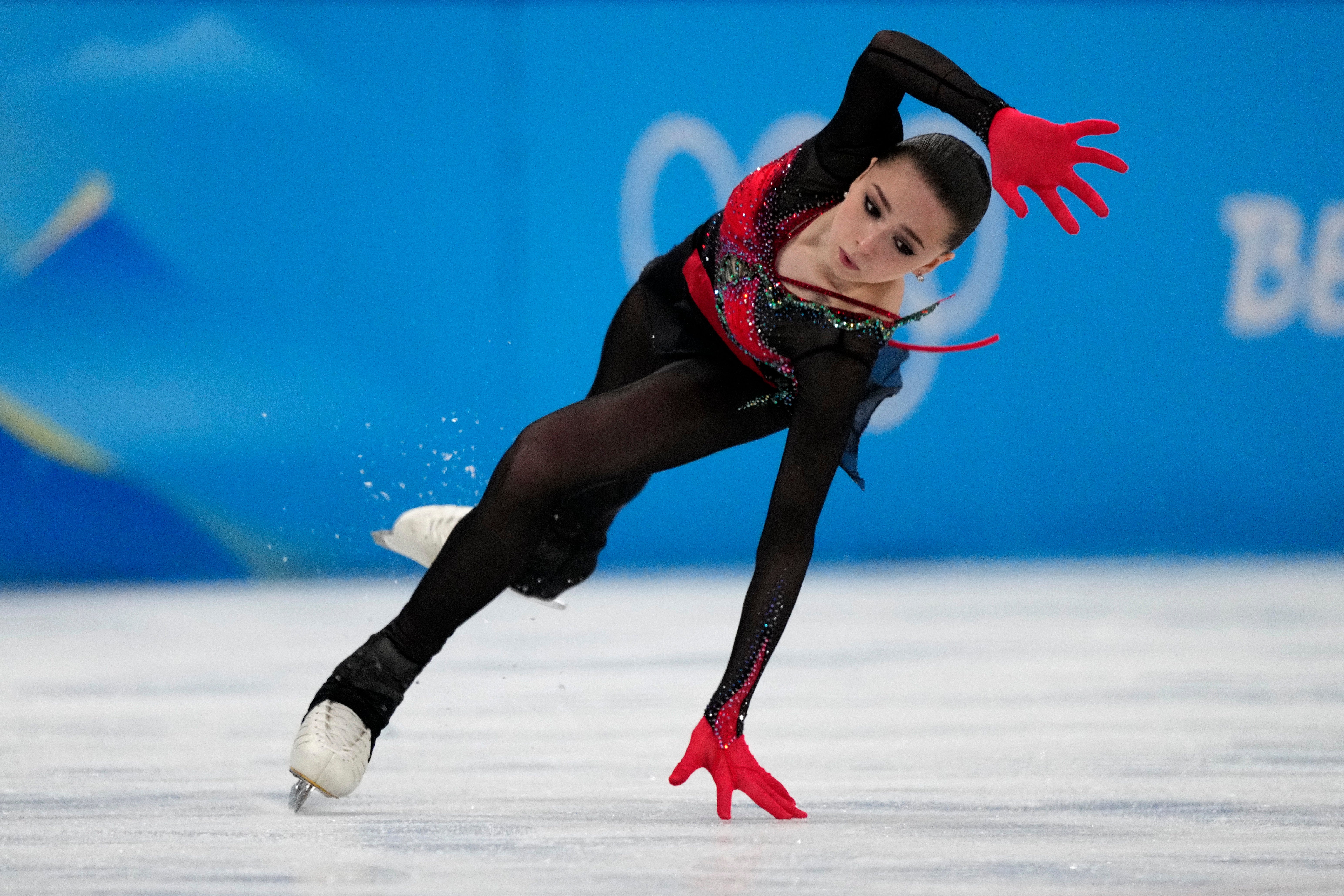Court cites lab delay in ruling allowing Valieva to skate
The judges who let Russian figure skater Kamila Valieva continue to compete at the Beijing Olympics blamed anti-doping officials for a “failure to function effectively.”

Your support helps us to tell the story
From reproductive rights to climate change to Big Tech, The Independent is on the ground when the story is developing. Whether it's investigating the financials of Elon Musk's pro-Trump PAC or producing our latest documentary, 'The A Word', which shines a light on the American women fighting for reproductive rights, we know how important it is to parse out the facts from the messaging.
At such a critical moment in US history, we need reporters on the ground. Your donation allows us to keep sending journalists to speak to both sides of the story.
The Independent is trusted by Americans across the entire political spectrum. And unlike many other quality news outlets, we choose not to lock Americans out of our reporting and analysis with paywalls. We believe quality journalism should be available to everyone, paid for by those who can afford it.
Your support makes all the difference.The judges who let Russian figure skater Kamila Valieva continue to compete at the Beijing Olympics blamed anti-doping officials for a “failure to function effectively.”
The Court of Arbitration for Sport explained its verdict in the case that has dominated Olympic headlines for more than a week in a 41-page document, citing the “untenable delay” at the testing laboratory in Sweden as a reason for letting the 15-year-old Valieva skate in the women's competition.
Valieva’s positive test for a heart medication was only revealed during the Olympics despite her urine sample arriving at the Stockholm lab on Dec. 29. The lab’s staffing was affected by the COVID-19 pandemic.
The full verdict was published early Friday, hours after the 15-year-old Valieva’s mistake-filled free skate dropped her from the lead to finish fourth in the women’s individual event at the Beijing Games.
Valieva was cleared to skate by an urgent CAS ruling Monday after an appeal hearing that started Sunday night and ended at around 3 a.m. Monday. The World Anti-Doping Agency and International Olympic Committee appealed against the decision by the Russian anti-doping agency to lift Valieva’s initial suspension, which had been triggered by the positive test.
“Put simply, athletes should not be subject to the risk of serious harm occasioned by anti-doping authorities’ failure to function effectively at a high level of performance and in a Manner designed to protect the integrity of the operation of the Games,” the verdict states.
Valieva’s lawyers suggested she tested positive “as a result of domestic interaction with her grandfather who uses ‘Trimetazidine’ after heart replacement surgery.”
The CAS document shows they suggested it could have happened “through dishes used by the Athlete and the Athlete’s grandfather (through drinking liquid from the same glass, as well).”
Valieva's status as minor, or “protected person,” under the world anti-doping code gave her an advantage. The standard of proof for a protected person is lower than for an adult making the same claim about testing positive because of a contaminated product.
Valieva tested negative in doping controls taken on Oct. 30, Jan. 13 at the European Championships in Estonia, and Feb. 7 in Beijing. That day, her skating helped Russia win the team event. The positive test was revealed a day later.
The CAS judges ruled in favor of Valieva, stating “athletes should not be subject to the risk of serious harm occasioned by anti-doping authorities’ failure to function effectively at a high level of performance and in a manner designed to protect the integrity of the operation of the Games.”
___
More AP Olympics: https://apnews.com/hub/winter-olympics and https://twitter.com/AP_Sports